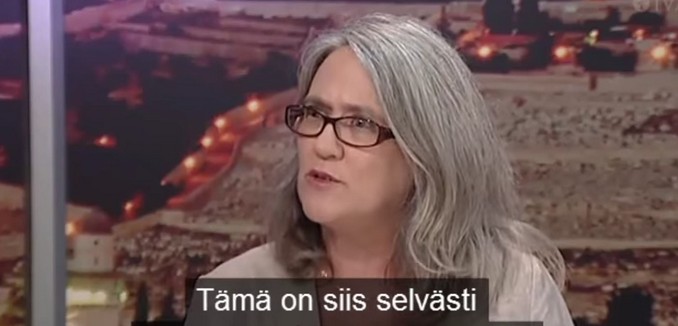Dr. Emily Landau, a nuclear proliferation expert at Israel’s Institute for National Security Studies, shared her concerns last Thursday about recent developments in the P5+1 nuclear negotiations with Iran. She made her remarks in a conference call organized by The Israel Project, which publishes The Tower. (A complete recording of the call is available here.)
Landau began the conference by identifying key problems with the negotiations between Iran and the P5+1, and later opened up the discussion to a number of questions and answers. In particular, she described the dynamic between the negotiating parties and how it benefited Iran. Iran, Landau explained, ultimately has no interest in a deal and will continue to refuse discussing any issue it has no interest in compromising on.
What we’ve been hearing from Iran over the past year is a resounding “no.” Iran has said “no” to almost everything. It said “no” to dismantlement of centrifuges; it actually wants to increase the number of centrifuges almost ten-fold. “No” ceasing of uranium enrichment. No closing Fordow, the enrichment facility or Arak, the heavy water plant. No discussion of weaponization aspects of its nuclear program. … No discussion of ballistic missiles. Iran has called ballistic missiles, even though we know that the delivery mechanism is a critical component of being a nuclear capable state, for Iran they are non-nuclear. Therefore Iran will not discuss ballistic missiles. And of course no to the more stringent verification that the P5+1 is pushing for.
For Iran, when the P5+1 makes concessions, they don’t view this as the other side making these positive steps and showing that they’re making a real effort to move closer to Iran’s perspective. The way they perceive these concessions is in the context of the hard bargain that the two sides are engaged in. In other words, for Iran, in this almost zero-sum bargain that’s taking place, if the P5+1 are starting to back away from their previously made demands they are obviously going to hold out for the best offer… Why would Iran, following the first concession, say “okay we’ll make a deal.”
Remember, Iran does not want this deal because Iran actually wants to retain a military, nuclear breakout capability. It’s not clear that they want to go for nuclear weapons today, maybe not tomorrow … the point is Iran wants to be able to move to a nuclear weapons capability at a time of its choosing and in order to do that it needs to maintain a breakout capability. Iran’s tactic and strategy in this negotiation is to get maximum sanctions relief for minimal nuclear concessions. That’s there strategy and so far they’re doing pretty well.
Landau explained, “in terms of the negotiation dynamic this is a very dangerous path to go down, if you start making concessions you’re only strengthening Iran’s leverage and bargaining position in this negotiation.” But Landau suggested an alternative path the P5+1 could pursue to regain leverage in negotiations:
The reason Iran must be confronted with the evidenced that the P5+1 has with regards to its military nuclear activities is in order to undermine Iran’s continuous narrative whereby Iran has done no wrong in the nuclear realm. This is Iran’s story from 2003 until this minute. Iran continually says you have not presented any evidence of wrongdoing, that we have done anything wrong in the nuclear realm, therefore sanctions are illegal, all of your demands are unjust because we have done no wrong. And by letting Iran off the hook regards to this issue the p5+1 are weakening their own leverage and bargaining position in these negotiations. If the weaponization issue was clarified and it became clear to everyone that Iran has been working on a nuclear military program for decades in direct and blatant violation of the Non-Proliferation Treaty (NPT) … that Iran has deceived and lied to the international community for years, Iran would not be able to continue with this story whereby it has done no wrong. It wouldn’t be able to make an interim deal like the deal that was made. If you look at the interim deal you will see that all the steps that each side takes are voluntary steps. Why are they voluntary steps? Because according to Iran’s narrative it’s done no wrong and therefore all of its obligations according to the interim deal are not really obligations they’re voluntary steps that Iran has agreed to take out of the so-called goodness of its heart.
According to Dr. Landau, broaching the weaponization program in the course of negotiations, rather than leaving it up to the International Atomic Energy Agency (IAEA), would increase the P5+1’s leverage in the negotiations.
[Photo: INSS / Israel ]




